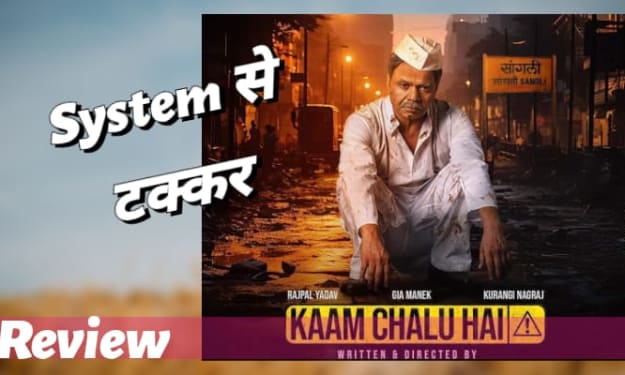10 Types of Literature
Though there are many more, a good benchmark for understanding the way stories are told can be derived from 10 certain types of literature.

Over the course of literary history, we’ve developed incredibly diverse ways to share the experiences, dreams, and stories that make us human. With storytelling continually being shaped and shared in different lenses, we’ve had no choice but to create new literary categories that stretch our imaginations and allow us to deliver new and exciting narratives to captivate audiences. Long gone are the days of Charles Dickens and Great Expectations, and with such a wide array of literary forms existing, it can be overwhelming, and even confusing, to figure out what niche our stories might fit into. That's why detailing 10 prominent types of literature that pervade our literary canon and inspire us to share our stories gives us the means to define all of the stories that will someday be told to the world.
Drama mainly encompasses material that is written with the intent of being performed. We owe a lot of our contemporary conceptions about the form of drama to the traditions of Ancient Greece, as the classic Greek tragedy and comedy have cemented their place in English literature. From Oedipus Rex to Romeo and Juliet, dramas have shaped our literary traditions with epic displays of love, heartbreak, life, and death, translating written plays into captivating theatrical performances. This is an incredibly distinct type of literature with its own stylistic conventions tailored to help performers embody the narrative.
Rising to prominence early in the twentieth century, comics are a type of literature that combine images and text to convey a narrative. Graphic novels are longer works of fiction and non-fiction made up of comics, visually depicting the events of the story with accompanying text. Comics and graphic novels appear in various forms throughout popular culture, from newspaper strips to popular superhero comic books. While graphic novels have a much more recent history, they have really caught up in the mid-1970s, and are becoming increasingly popular with audiences who enjoy the integration of visual art with narrative storytelling.
Poetry is known for emphasizing the aesthetic elements of language. While sometimes underscoring the rhythmic nature of language with intricate rhyme schemes, poetry can also take the form of “free verse,” which does not rely on any rhyming patterns and closely resembles prose. Stylistically, poetry tends to be evocative through symbolic means, encouraging readers to decipher the meaning of various metaphors and allusions while also providing vivid imagery to the imagination. From the beautiful love sonnets of William Shakespeare to the dark and moody poems of Sylvia Plath, poetry allows us to employ figurative language to explore the intricacies of the human experience.
Works that deal with factual events that can be assumed to have actually happened are categorized as non-fiction; and as a widely popular type of literature, non-fiction provides storytellers with the opportunity to share fact-based experiences and information to readers. Biographical accounts, memoirs, and essays are all examples of the different types of non-fiction, and popular authors in this genre include the likes of Ernest Hemingway and Virginia Woolf. Non-fictional material written specifically about fiction is deemed literary criticism, which allows writers to analyze fictional works using scholarly information.
A fable is a type of literature with folkloric roots that uses legendary "tall tales" to impart a moral lesson on its reader. Fables are similar to fairy tales in that they incorporate mythical or magical elements into the story, but fables are distinguished as tales with the explicit aim of teaching the audience a lesson. As one of the most enduring types of literature, these stories have solidified their place in literary history by contributing well-known narratives, such as the fables of Aesop, that continue to be shared today. Fables provide a unique platform to deliver truths about humanity through the use of fictional, mythical elements.
Stories that elicit fear or dread from readers are typically classified as horror stories, including diverse works ranging from the strange short stories of H.P. Lovecraft to terrifying Stephen King novels like The Shining. Horror includes stories intended to terrify their audiences. For many, the adrenaline rush of experiencing the fear provoked by horror stories makes the reading experience enjoyable, as the powerful nature of literature is proven through the psychological and physical impact these types of stories can have. Horror has been popular for centuries and continues to inspire writers to dream up new terrors that will shock, disgust, or frighten readers around the world.
Commonly referred to as “sci-fi,” science fiction is literature that imagines a vision of the future that has been impacted by scientific innovation. Incorporating elements like time travel, extraterrestrial life, and parallel universes, science fiction is a highly imaginative literary form that fuses fantastical fictional elements with scientific inquiry. Alduous Huxley’s dystopian thriller Brave New World, Ray Bradbury’s space odyssey The Martian Chronicles, and Orson Scott Card’s exhilarating Ender’s Game are just a few examples of the best sci-fi writers from this inventive literary genre, which remains a popular genre today.
Works like Agatha Christie’s And Then There Were None and Arthur Conan Doyle’s The Adventures of Sherlock Holmes fall under the category of mystery, which, as the name implies, presents the story of a mystery to be solved. This literary genre often features a murder or crime at the center of its plot that the protagonist must solve, encountering any number of twists and turns along the way. The puzzling and suspenseful nature of this genre has delighted audiences since the beginning of the nineteenth century, encouraging readers to try and uncover the truth alongside the protagonist.
Fantasy is a genre that includes stories set in fictional worlds often full of magic and mythical creatures. Relying on supernatural elements, fantasy allows storytellers to dream up entirely new worlds ready to be explored by brave protagonists itching for adventure. The Harry Potter series, for example, is classified as fantasy because it establishes a fictional premise in a magical world, enabling the characters to interact with fantastical creatures and powerful spells (even if J.K. Rowling made some mistakes). Fantasy is a broad category that encourages storytellers to transcend the limits of our own world by imagining unique, exciting places in which their stories can take place.
Magical realism occupies the intersection between fiction and non-fiction, embedding supernatural or fantastical elements within an otherwise realistic world. Originating from Latin America, magical realism has been popularized by prominent authors such as Gabriel García Márquez, Isabel Allende, and Jorge Luis Borges. This creative type of literature infuses exciting magic into the mundane world of the everyday; and, similarly to fables, uses the dramatic fictionality of fantastical elements to evaluate the truths of our reality. As a distinctive literary genre, it inspires readers to consider the magic of the quotidian and to think about the universal conditions that unite us all.
These different types of literature represent some of the most prominent ways we engage with stories, but there are so many more ways to tell our own unique narratives. If literary history has shown us anything, it’s that these categories are not as static as they might seem, and we as humans continue to shape and mold these forms while also creating new ones. Looking at the various types of literature we’ve created throughout our history not only allows us to think about new ways of expanding these categories, but it also inspires us to imagine new ways of telling our stories.
About the Creator
Caesar Finkle
Journalist and fine woman connoisseur from Danbury, Connecticut.






Comments (1)
Literature is a window into the worlds of various stories and thoughts. Sometimes, when describing this world, help with writing a literature review https://literaturereviewwritingservice.com/ becomes necessary. It not only broadens our understanding but also provides an opportunity to share our impressions with others.